SUMMARY
This is AI generated summarization, which may have errors. For context, always refer to the full article.
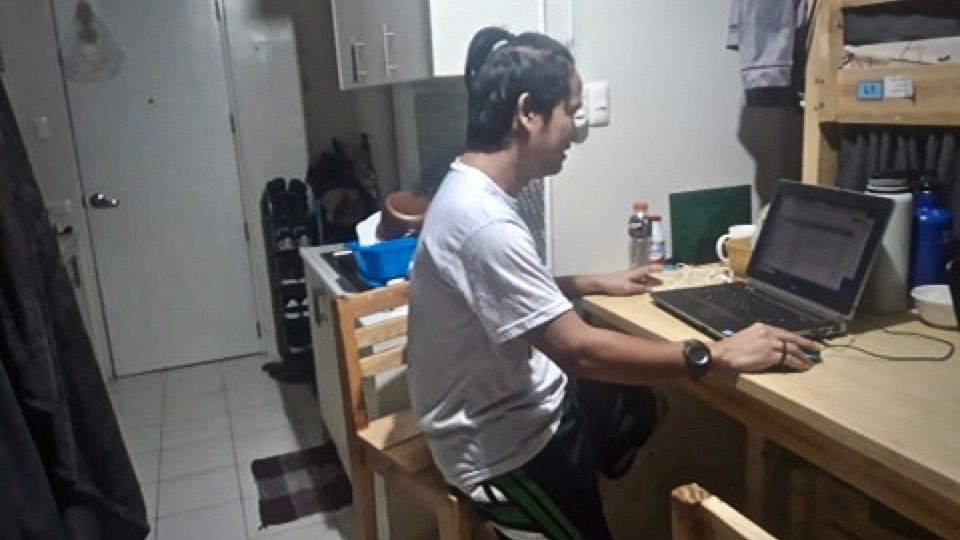
AT A GLANCE
- While the Duterte government prioritizes over 24,000 stranded OFWs, it has no count of non-OFW Filipinos stranded in Metro Manila and other provinces.
- National government guidelines on sending stranded individuals home are not followed uniformly by local government units, causing confusion among those stranded.
- Facebook groups with thousands of members have been created by stranded individuals to clarify confusion in the implementation of the government’s program to send them home.
- The Balik Probinsya pet project of Presidential-aide-turned-senator Bong Go stirs confusion among stranded individuals. It is not the government’s project to send them home but a long-term economic development plan.
- Stranded Filipinos are excluded in reference lists for relief packs because they are not voters in the area they temporarily live in.
MANILA, Philippines – On May 25, President Rodrigo Duterte spelled out his order clearly: that the government must use “all of its resources” to send stranded overseas Filipino workers (OFWs) home.
He gave 7 days. The government estimates 24,000 OFWs needed its help.
The government moved swiftly. All OFWs were supposedly already tested, and all turned out negative. In sending them home, the administration booked over a hundred buses and chartered dozens of flights. Passenger ships were readied to sail.
By the second day following the President’s order, over 7,400 OFWs had returned to their homes, putting the government on track in fulfilling the President’s wish.
In his address on Tuesday evening, May 26, Duterte lambasted local governments rejecting and delaying the arrival of the OFWs.
As the government prioritized stranded OFWs – a strand of the Philippine population where President Duterte commands a sweeping base – it has failed to grant the same services to stranded Filipinos in Metro Manila who came from the provinces: the probinsyanos.
They are Filipinos chasing opportunity in unfamiliar territory and stranded just the same, but are, in many ways, more vulnerable than OFWs.
They are not given free accommodation in hotels and boarding houses. Most, if not all, have not received the government’s cash aid after local officials asked for voter’s IDs in a locality they do not call home. They have no family members to bail them out, their salaries mostly spent as soon as they came, and the measly funds in their pockets already dried out.
There are lucky ones who have local government units stepping up to book sweeper flights to return them home, but many have not heard from their leaders.
The government categorized them as locally stranded individuals (LSIs). Unlike the OFWs, the government does not have an estimate as to how many LSIs there are, not even in Metro Manila.
Not being afforded the same urgency as their recently returned counterparts, they have felt abandoned by the national government, the local governments of the cities they are stranded in, and the local governments of their homes.
A Cebuano does the work
Recky Colonia could have been in South Africa by now, but today, he is stranded in Sucat, hunched over his laptop, scrolling through a Facebook feed flooded with stories of desperation.
A licensed mechanical engineer, Recky flew from Cebu to Manila in January to have his travel documents sorted by his company before he becomes an OFW. The coronavirus outpaced his papers.
Before he could leave, Metro Manila shut its borders and grounded its planes. Days later, he was told that there was no longer a job waiting for him on the other side of the world. Days later, he was told that there was no money pouring into their company to sustain his position in the Philippines.
He rented a bed in an apartment in Muntinlupa City with 3 other men he did not know before. At 34, he learned to prepare adobo, sinigang, and tinola using the ricecooker he bought before the malls shuttered.
“Kailangan mo siyang tiyagain, hindi siya ganoon kabilis magluto (You need to have patience for it. It does not cook that fast),” he said in a phone interview with Rappler.
For the first two months of lockdown, the government had no policy to allow stranded Filipinos to go back to their home provinces. The effort only came through a memorandum on May 13 issued by the National Task Force Against COVID-19.
The government required stranded Filipinos to secure two things: a medical certificate proving that they are not at risk of carrying the coronavirus issued by a local health office, and a travel permit obtained through the local government unit or the police.
Recky has acquired both, but the Cebu provincial government only started processing the return of its stranded locals on May 27.
While waiting, Recky found that many fellow Cebuanos were entangled in the same predicament. Most of them were not as fortunate as Recky to have sustaining savings and responsive local governments to process their papers.
He met them first through a Facebook group chat. Stranded probinsyanos and OFWs sent tips and collected announcements that came in trickles. Eventually, the chatbox got crowded that the feed got too cluttered for anyone’s benefit.
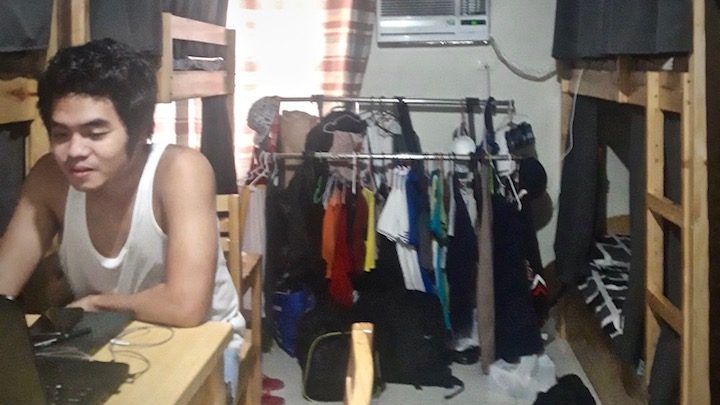
Recky then started the “Cebuno stranded in Manila” Facebook group in the first week of May, a typo inflicted on its name in the rush to create it. As of May 28, the group had over 390 members. They get new members every day.
His Facebook group is only one of many that have emerged since the lockdown. A Facebook group for stranded Negrenses has over 360 members, one for Ilonggos has over 170 members, one for Davaoeños has over 1,600 members, and one for Caraga Region residents has over 4,400 members.
“Kinsay stranded diri sa Taguig? Gi unsa ninyu pag kuha requirements or barangay cert. Kay di daw sila muhatag kung di resident,” said one poster on May 27. (Who is stranded here in Taguig? How did you get requirements for barangay certificate. Because they won’t give it if you’re not a resident.)
“Kinsay stranded diri Pasay? Mitry kogadto city hall. Di man sila mo issue ug travel authority ug medical cert kung way transport details. Unsaon man ni ron,” said another one (Who is stranded here in Pasay? I tried going to city hall. They won’t issue travel authority and medical certificates without transport details. What do I do now?)
Overwhelmed, Recky created an online document listing all stranded Cebuanos stranded in Manila. Recky’s spreadsheet counts a total of 222 LSIs as of May 27, including 13 students.
He sent the document to the government’s National Incident Command-Emergency Operations Center on May 22, which, according to Recky’s email, was forwarded the next day to the Department of the Interior and Local Government (DILG)’s OFW desk.
“Hope your office can help us, w’ere here for more than 2 months, no work, no income, some are Tesda students, some are only here for documents processing, some already lost their jobs…Almost all of us [are] out of budget, we were not able to get some financial assistance in any government offices,” Recky said in his concluding message.
Recky has not received any updates since, and everyone on his list remains stranded.
“Sa amin mga LSI, bakit nila naging priority ang mga OFW eh ang mga OFW nga dumating dito may perang sarili, may kinikita ‘yan bago umuwi dito. Kaming mga LSI marami sa amin walang trabaho…Hirap na hirap na rin kami dito,” he said.
(For us LSIs, why did they prioritize OFWs when the OFWs have their own money and were earning before coming home. We LSIs, most of us have no work…We’re having so much difficulty here already.)
An Ilonggo’s last hope
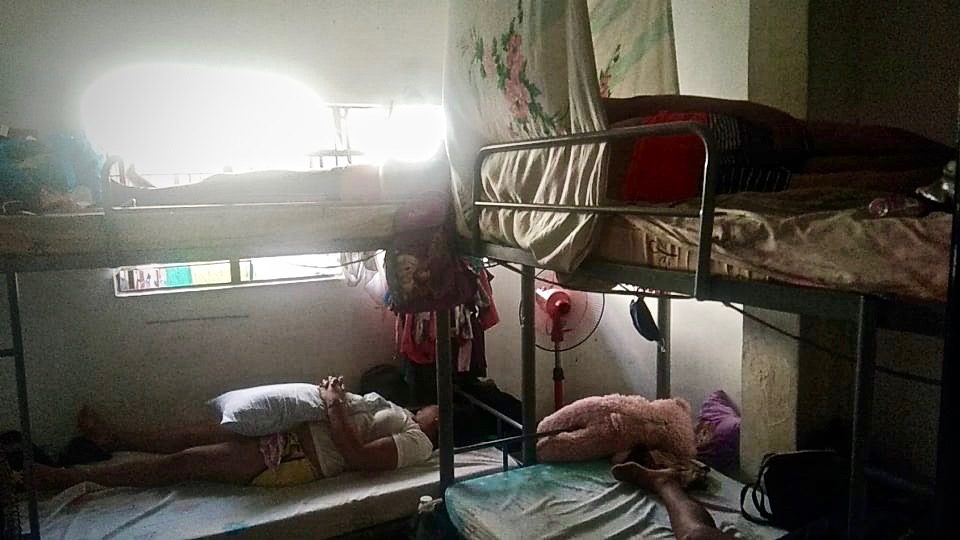
Marciana “Maymay” Canopin is praying on a deadline.
At 21, Maymay left her hometown of Kabankalan City in Negros Occidental, working as a masseuse in Metro Manila to provide for her 33-year-old live-in partner and 3-year-old baby at home.
The small commissions from small massage parlors in the south could not match the P500-per-hour rates and free accommodation from the capital region’s massage spas. She was also given a sack of rice per month and Manila customers were more likely to drop her a tip.
When the coronavirus put almost the entire country on lockdown, she lost all these benefits, save for being allowed to stay in an apartment in Barangay Caniogan, Pasig City. She shared the space with 13 others who worked in a spa; they hailed from Quezon, Bicol, Cavite, and Bacolod. The oldest is 30 and the youngest is 19.
Starving, they have walked one hour to and from their barangay hall at least 5 times in the last two months to ask for help. They have only been given relief goods once on May 26.
They have received no cash aid from the national government. They had no money left to buy soap and shampoo.
“Wala kaming malapitan. Kasi yung katwiran nila, hindi kami botante (We couldn’t ask for help from anyone. They say it’s because we are not voters),” she said.
They applied for inclusion in the Balik Probinsya program. It sounded like the government’s plan to send them home, Maymay said.
Barangay staffers told them to list their names and come back within two to 3 days. When they returned, they were told the barangay captain was too preoccupied to face them.
“Hindi man lang kami binigyan ng form (We weren’t even given a form),” she said.
They applied with the wrong program. Balik Probinsya is not the government’s initiative to send home LSIs like the 14 of them home, but the pet project of presidential aide-turned-senator Bong Go, aiming to decongest Metro Manila in the long-term by providing employment opportunities outside the capital region.
This is a problem the DILG itself acknowledged.
“’Yung understanding ng common masa, akala nila, iisa ‘yun. So dun tayo nagkakaroon ng problema (The wrong understanding of the people is that they are the same. That’s where we encounter problems),” said Karl Rimando, the DILG’s director of the National Barangay Operations Office (NBOO), in a phone interview with Rappler.
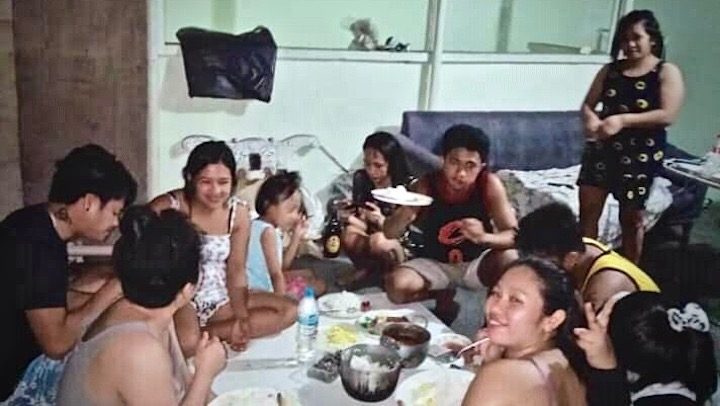
In a press briefing on Tuesday, May 26, DILG Secretary Eduardo Año said over 50,000 have applied for the Balik Probinsya program, but they do not know how many of them mistook the program for their ticket back home.
Maymay and her fellow masseurs and masseuses were only directed to follow the correct process and told to self-quarantine for their medical certificates on May 21, on their 4th visit.
“Sana noong unang punta pa lang sinabi na, eh di sana tapos na kami, kaso wala na. Wala silang kagana-gana na kausapin man lang kami,” she said. (I wish that during our first visit we had been told about it so we could have completed it, but time’s already lost. They don’t have any enthusiasm speaking with us.)
The time wasted was precious. Maymay had purchased a ticket for a flight home on June 8, thinking that the crisis would be over by then. The government has still failed to flatten the virus curve months after.
Maymay’s self-quarantine period ends on June 4, and still, the medical certificate is an uncertainty. She would also need to apply for a travel authority from the police and then inform the provincial government that she is set for home.
“Ang pag-asa na lang namin ang ticket namin. Ito na lang natitira sa amin,” she said. (Our ticket is our only hope. This is what’s left with us.)
She could not afford to miss the flight because, simply, she has no money left. Her partner had sent her cash but it has all been spent to fend off starvation. Missing the flight only means continued hunger, even embarrassment.
“Kaming mahihirap naglalakad lang. Hindi kasi nila alam ang kahirapan namin para maka-comply lang, para makauwi…Minsan iniisip mo na nag-Maynila ka pa, pero wala namang saysay dahil ‘di ka naman nakakapagpadala,” she said, sobbing.
(We, the poor, just walk. They do not understand our struggle just to comply, just to go home. Sometimes I think to myself why I even bothered to come to Manila when I can’t even send money back home.)
She added: “Gusto lang namin makauwi, kahit hindi na nga kami bigyan ng tulong basta pauwiin na lang (We just want to go home, even if they don’t give us aid, as long as we can go home).”
Davaoeño’s lost birthday
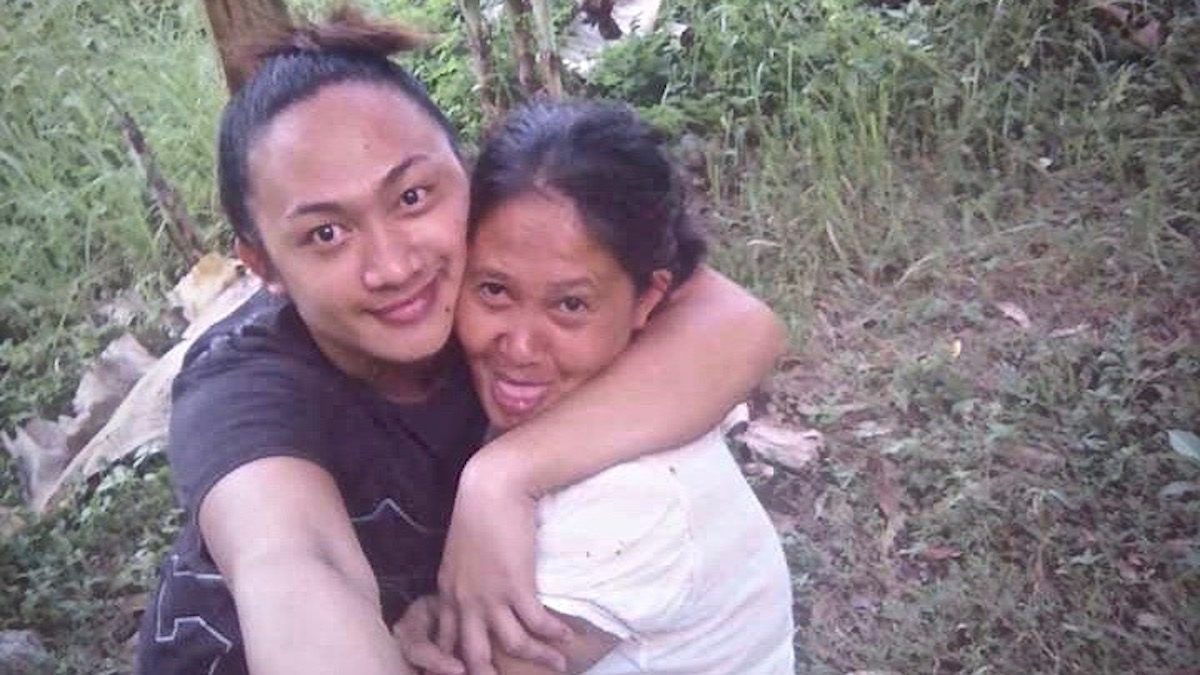
Alfie Pateno came to Metro Manila in January 2018, then a 20-year-old high school graduate who wanted to singlehandedly lift his broken family from poverty in Nabunturan, Davao de Oro.
He had bigger dreams for his brother, Mike David, who is already in Grade 11. To fund his schooling, Alfie worked as a househelp for 3 months then found his current job of sewing cloth cutouts into t-shirts in a house somewhere in San Isidro, Parañaque.
He lived and worked in the same house, sitting in position at 8 am and locking the last stitch at 9 pm. He was paid for overtime. Earlier this year, he saved up money for a plane ticket home. He wanted to return on May 3, his birthday.
“Nami-miss na raw ako ng nanay ko. Palagi daw niya ako nami-miss. Sabi ko, ‘Uuwi ako this year, don’t worry,’” he said in a phone interview with Rappler.
(My mother keeps telling me that she misses me. I told her, “I will come home this year, don’t worry.”)
The lockdown dashed his excitement, but he still wants to go home as loneliness has begun to set in. They were around a dozen tailors when the lockdown began. Now they are down to 3.
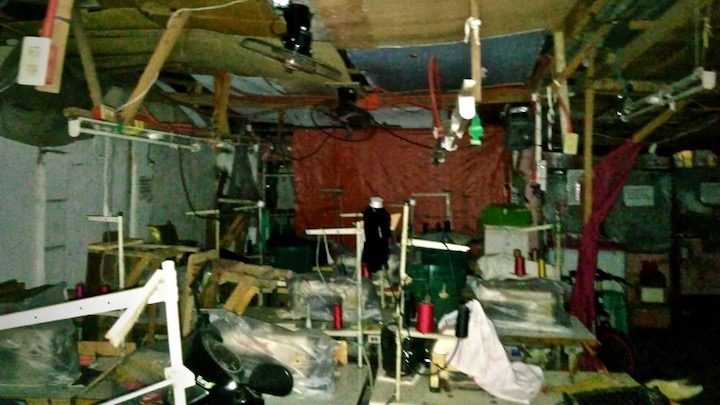
Like other stranded Filipinos, Alfie mistook the government’s Balik Probinsya program as the government’s effort to send him home. He submitted a form through the program’s online portal and waited for weeks, before he came to the proper process of going to their barangay hall.
He has not completed any requirements yet. He was told by the barangay officials to wait to be tested. But tests would only come in June, they told him.
“Sabi nila, kung gusto namin mapadali ang proseso, kailangan namin pumunta sa ibang clinic para sa rapid testing, kaso magbabayad kami. Wala kaming pambayad,” he said. (They said that if we wanted to speed up the process, we need to go to our own clinic for a rapid test, but we have to pay. We have no money.)
According to the government’s guidelines, Alfie does not need to be tested because he has shown no symptoms of contracting the virus. He only needs to self-quarantine for 14 days before he is issued a medical certificate then a travel pass.
Alfie tried to ask for help through the Facebook page of Nabunturan, and through its publicly posted mobile numbers. He texted them in the span of a week. He got no reply from all of them.
“Ang suggestion ko puwede naman mauna ang mga dito sa Manila bago yung ibang bansa,” he said. (My suggestion is that they should accommodate first the people who are already here in Manila before those who are coming from abroad.)
This year, Alfie did not spend his birthday with his mother, but he continues to hope – despite the desperation – that he would eventually be able to return home. – Rappler.com
TOP PHOTO: HELPLESS. Maymay Canopin at her company-rented unit, which she shares with 13 fellow masseuses and masseurs. Photo from Canopin
Add a comment
How does this make you feel?
There are no comments yet. Add your comment to start the conversation.